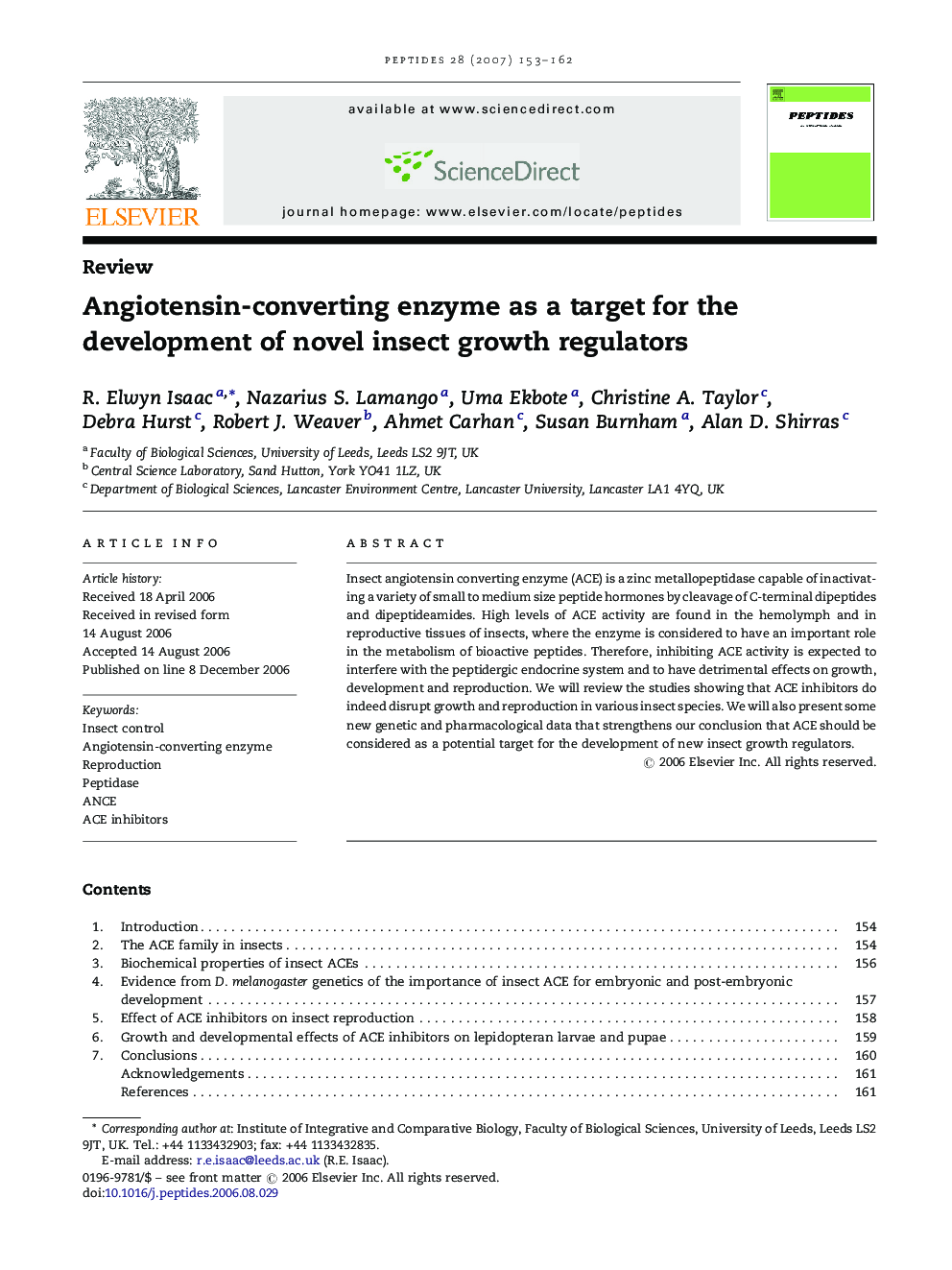| Article ID | Journal | Published Year | Pages | File Type |
|---|---|---|---|---|
| 2008578 | Peptides | 2007 | 10 Pages |
Insect angiotensin converting enzyme (ACE) is a zinc metallopeptidase capable of inactivating a variety of small to medium size peptide hormones by cleavage of C-terminal dipeptides and dipeptideamides. High levels of ACE activity are found in the hemolymph and in reproductive tissues of insects, where the enzyme is considered to have an important role in the metabolism of bioactive peptides. Therefore, inhibiting ACE activity is expected to interfere with the peptidergic endocrine system and to have detrimental effects on growth, development and reproduction. We will review the studies showing that ACE inhibitors do indeed disrupt growth and reproduction in various insect species. We will also present some new genetic and pharmacological data that strengthens our conclusion that ACE should be considered as a potential target for the development of new insect growth regulators.
